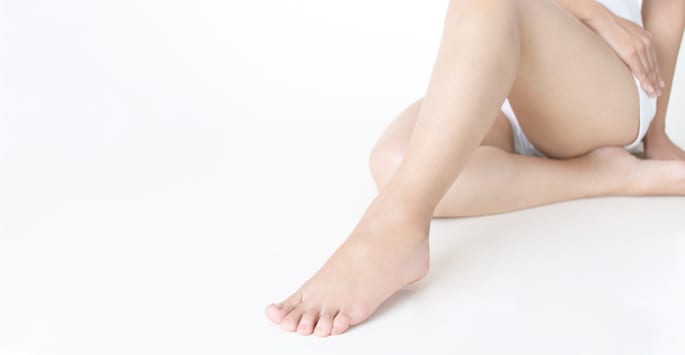Chronic vein insufficiency is a condition in which blocked or damaged veins prevent blood from flowing back to the heart. As a result, blood pools in the legs, causing symptoms like swelling, pain that worsens upon standing, cramping in the legs, a feeling of heaviness or aches, itchy skin, weakness in the legs, thickened skin, ulcers, and varicose veins. If you are experiencing the symptoms of chronic vein insufficiency, here’s what you need to know about how this condition is diagnosed and treated.
Diagnosis of Chronic Vein Insufficiency
First, our doctor will take a complete medical history and perform a physical examination. We will also ask questions to explore your symptoms further. In some cases, imaging tests are used to diagnose vein issues. Diagnosis at our office typically consists of a vascular ultrasound exam, which will help us evaluate the health of the veins in the lower extremities. Your physical exam will also include an evaluation of the pain you are experiencing, which will allow us to rule out other conditions such as deep vein thrombosis. Once we have determined that you have chronic vein insufficiency, we can begin to develop a personalized treatment plan for you.
Treatment Methods and Lifestyle Changes
The extent of treatment required for chronic vein insufficiency depends on the type and severity of symptoms you’re having, how old you are, your general health status, and other factors. The first line of treatment is usually prescription compression stockings that are specially fitted to apply pressure to the foot and ankle, preventing blood from pooling. You should also exercise regularly, keep your legs uncrossed, and elevate them when possible. If the condition is not improved with these lifestyle measures, additional treatments may include the following:
- ClariVein
- VenaSeal
- Endovenous Laser Ablation Therapy (ELVT)
- Sclerotherapy
- Mini-phlebectomy
Prevention Strategies
Certain people are at higher risk for chronic venous insufficiency, including older adults and those who smoke, have a family of varicose veins, are overweight or obese, or lead a sedentary lifestyle. Removing controllable risk factors with smoking cessation, weight loss, and regular exercise can help improve your vein health as well as reduce risk for other diseases.
If you’re experiencing the symptoms of chronic vein insufficiency, talk with our doctor at Canada Vein Clinics. We can work closely with you to develop a strategy to alleviate your discomfort. We proudly serve patients in Ontario, Nova Scotia, and New Brunswick with comprehensive and personalized vein treatments. To learn more about chronic vein insufficiency and start a treatment plan tailored to your needs, schedule a consultation with a clinic near you today.



